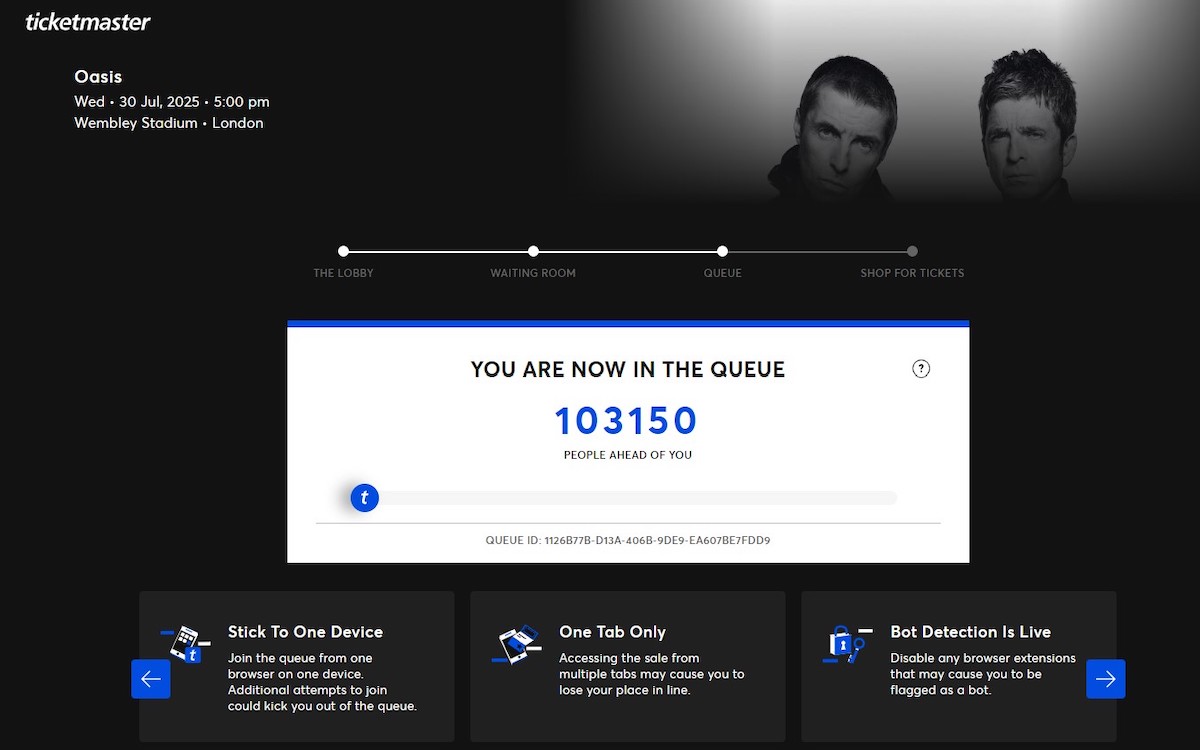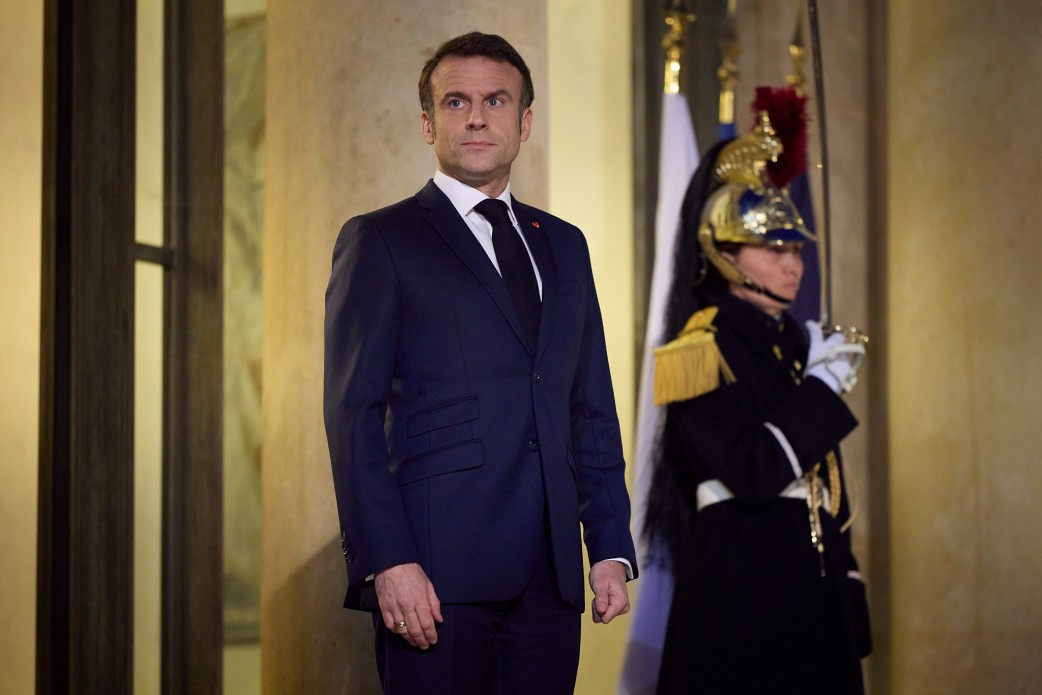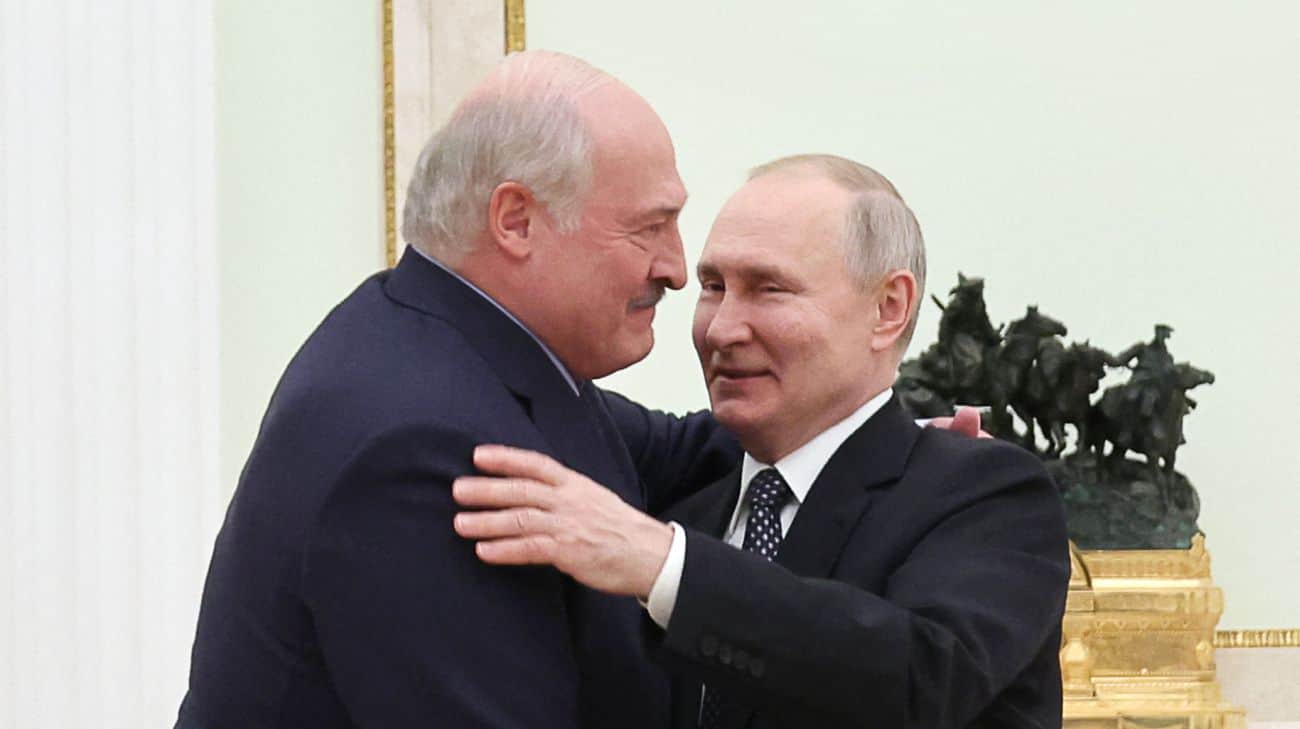Government announces post-Oasis ticket resale clampdown
The government has said it will intervene to tackle ticket touts after a recent wave of frustration around inflated resale prices. As part of the government’s broader Plan for Change, a public consultation has been announced to stop exploitative practices in the ticket resale market and to improve transparency for fans. The announcement comes after [...]


The government has said it will intervene to tackle ticket touts after a recent wave of frustration around inflated resale prices.
As part of the government’s broader Plan for Change, a public consultation has been announced to stop exploitative practices in the ticket resale market and to improve transparency for fans.
The announcement comes after a string of high-profile events were met with backlash over ticketing prices. Last year, thousands of tickets to Oasis’ hotly anticipated reunion were resold at hugely inflated prices. In October, Ticketmaster cancelled nearly 50,000 tickets sold on unofficial secondary websites.
Jonathan Reynolds, business secretary, said that “from sports tournaments to Taylor Swift, too often big events are marred by ticket touts exploiting fans.”
“This isn’t fair on people or the live events sector. Our Plan for Change is about putting fans back in control” he said.
Capping ticket resales
The proposal is threefold, beginning with the capping of ticket resales.
To set such limits on resale prices, the government could be restricting markups to 30 per cent over the original asking price.
The government will also be holding platforms accountable by introducing certain legal obligations for them to ensure the listings are accurate, and rule breaches are penalised accordingly.
Finally, it will be strengthening enforcement by updating certain legislation in favour of consumer protections.
Under this measure, the current £5,000 fine for violations will be increased, while a licensing system for resale platforms will also be implemented.
Dynamic pricing, which is where ticket prices adjust according to availability and demand, has also come under fire. While some events have previously used it to fill unsold tickets, fans have faced unexpected price hikes as a result.
Due to this lack of transparency, the government has launched a call for evidence into this practice to see whether regulations need to be tightened.
Closing the £350m market
According to analysis by the Competition and Market Authority (CMA), ticket resale markups average over 50 per cent, with some being sold as much as six times their original price.
Virgin Media O2 also estimated that ticket touts cost music fans an additional £145m per year.
The CMA valued the nation’s resale market at £350m back in 2019, with five to six per cent of primary ticket sales being resold.
‘Pockets of greedy touts’
Lisa Nandy, Culture Secretary, said that “everyone deserves a fair shot at tickets for their favourite acts or sports teams, but fans have endured the misery of touts hoarding tickets and reselling them at inflated prices for too long.”
“These changes will ensure the money goes back to fans and the industry—not into the pockets of greedy touts” she noted.
Musician Fatboy Slim agreed: ““Great to see money going back into fans’ pockets instead of resellers. This effort will ensure more people can enjoy incredible events without being ripped off.”
Chief executive of the live music trade body LIVE also added: ““This is a positive step to put fans back at the heart of live music. We support fair fan-to-fan resale and eliminating third-party profiteering.”



